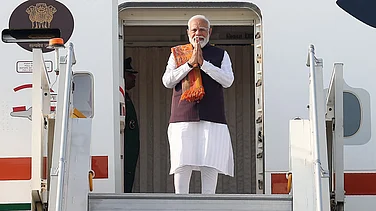SANCHAR Bhawan, which houses the Communications Ministry, is abuzz with overseas calls from top executives of global telecom majors, foreign banks and financial institutions apprehensive about the future of telecom privatisation. But ministry officials are able to do little to reassure the anxious callers because they themselves are clueless whether privatisation will be spiked altogether or drastically reviewed.
"We are having a hard time explaining to our foreign partners that the Sukh Ram case will not hit telecom privatisation," says the chief executive of an Indian telecom firm. "Of course, we too are concerned. God knows what's in store for us." There are enough MPs already demanding the scrapping of all telecom licences or letters of intent (LOIs) issued during Sukh Ram's tenure as communications minister.
Even former Telecom Commission chairman R.K. Takkar has been flooded with calls from jittery telecom companies. "Any move to scrap licences given to cellular service providers or taking back LOIs issued in the 10 basic telephone circles would be really retrograde," he says. "While I hold no brief for corrupt ministers or DOT officials, all the benefits of the past few years should not be abandoned because of what was found in the CBI raids."
P.K. Sandell, president, Telecom Industry Services Association, agrees: "The Sukh Ram case and privatisation should be viewed as two separate issues. Ministers have taken money in the past and will do so in the future. That does not mean that entire policies or processes should be scrapped." Of course, Sandell himself says that the whole tender process, especially for privatisation of basic services, "was stinking right from the word go". "First there was no transparency, because somebody wanted to make money," he says. "After months of silence, a cap of three circles per bidder was announced for both basic and cellular services. The motive was to save one particular company and hurt another US global major which had won more circles than the Communications Ministry wanted it to. Then out of the blue came new reserve prices."
Sukh Ram's greed subverted the process to the extent that so far in only 10 out of the 21 basic telephone circles LOIs have been issued. But even in these 10, confusion reigns: private services are unlikely to start in the near—some say, even distant—future. Among the rest, all bidders have dropped out of eight circles, and a decision on issuance of LOIs in the remaining three circles is still pending with the DOT.
But a review or cancellation of the license process will have consequences far beyond the telecom industry. In the eyes of foreign investors, the credibility of Indian Government's decisions will be hit. Investment, which the country desperately needs in other infrastructural sectors, will definitely be stalled, and the $10-billion-a-year foreign investment target set by the Government will remain unreachable. All of which could amount to a grievous setback in India's journey to economic prosperity.


























